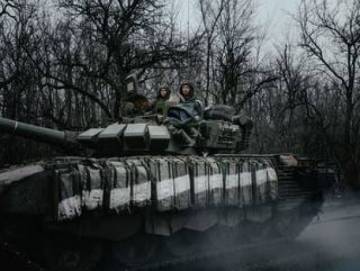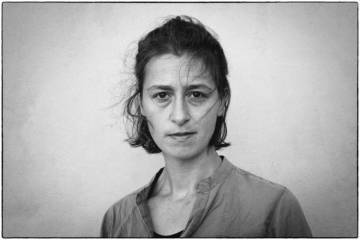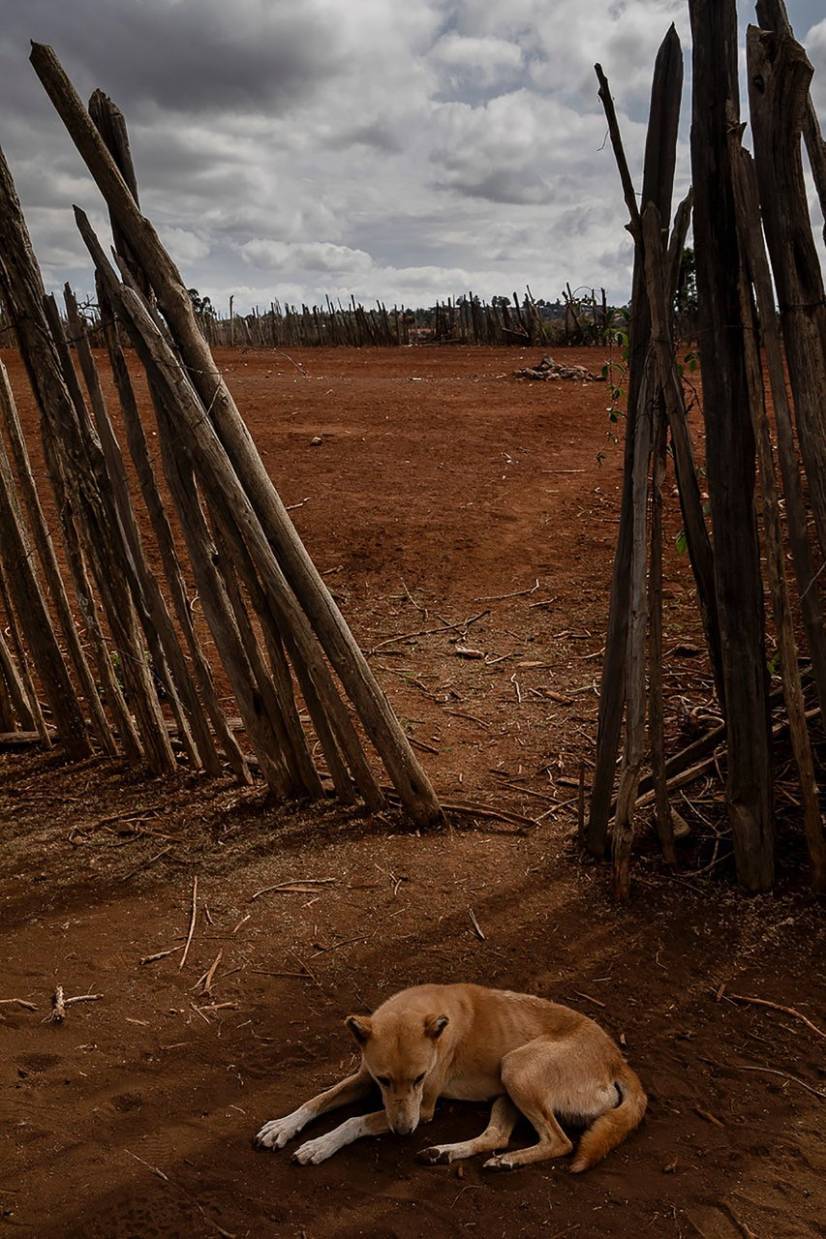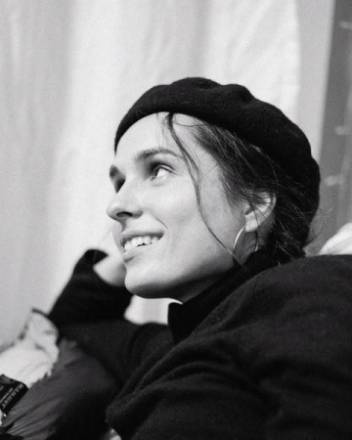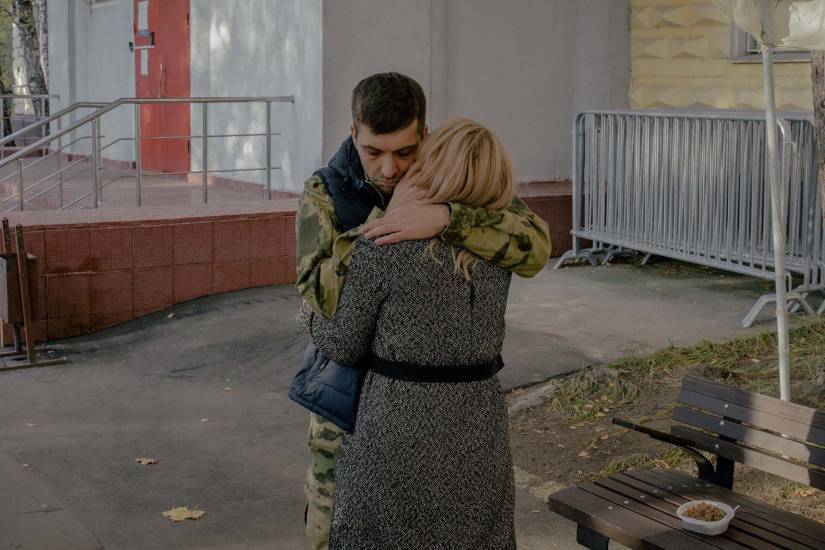Since 2020, the Ministry of Culture, in partnership with the photojournalism festival Visa pour l'image, has awarded two scholarships for women photojournalists. In 2022, this financial support is getting a makeover : it is renamed Françoise Demulder Award, named after the first female photo-reporter to have won the World Press Photo in 1977 for an image made in Beirut during the war in Lebanon. With 8,000 euros – compared to 5,000 previously – for each of the two winners. With this distinction, the Ministry of Culture strong support for industry professionals, notably marked by several photojournalism initiatives, including a large public order led by the Bibliothèque nationale de France as part of the recovery plan.
After Chloé Sharrock and Nicole Tung in 2020, Darcy Padilla and Axelle de Russée in 2021, the first Françoise Demulder prize is awarded in 2022 to Adrienne Surprenant and Nanna Heitmann. Both must produce a report before the 2023 edition of the Visa for the Image Photojournalism Festival. The first, Canadian, was born in 1992, the second, German-Russian, is his youngest of only two years, Lucas Barioulet, winner at 26 of the Golden Visa of the city of Perpignan Remi Ochlik for his coverage of the war in Ukraine for the newspaper Le Monde, they show, with an impressive pedigree, that talent definitely does not wait for the number of years.
Eclecticism and nuance, the trademark of Adrienne Surprenant
« I’m a little bit interested in everything – in the environment, psychology, geopolitics, history, poetry, feminism, I’ve worked on mental health, human rights and the environment – but always in an approach where nuance is revealing ", says Surprising Adrienne. A glance at her website – but also his collaborations with the biggest international press and the exhibitions that account for his work – suffice to be convinced. Trauma and mental health in the context of conflict in the Central African Republic, documentation of the interoceanic channel project between the Atlantic and Pacific Oceans in Nicaragua presented at the Visa pour l'image festival in 2015, series on dengue fever in the various places of the world where the disease is rampant… The eclecticism of the woman who, as a child of journalists, had the passion for reading », « curiosity » and the desire to « uncover ” is at home as second nature.
An image will never speak to all in the same way
Its eclecticism, therefore, but also this nuance to which it attaches above all. A few months ago in Ukraine, for the newspaper Le Monde, she grasps in the same image the silhouette and eyes of a farmer who has just lost his crop and, a little behind, those of his daughter. And if the girl’s face is sad too, her eyes, raised and turned towards him, also speak hope as well as affection and empathy. « An image will never speak to all in the same way, admits Adrienne Surprenant, but as long as it makes you think, or makes you want to read the legend to know the history of the people represented there, it succeeds a little something ». The photojournalist, who has documented the worst in Ukraine – the war crimes committed by the Russian army and the suffering of the water-deprived Donbass – now wants to leave. « When I start working in a region, or a country, I find it hard to get away from it afterwards ", she continues.
This past year, the young photojournalist used to working alone almost always teamed up. “ It was a stimulating experience, she confides, I learn new things from everyone, and this allows me to focus on his part of the work: to the journalist the text, to me the photograph. And the exchange in duo, and even sometimes in trio with the fixer-producer, allows us to question ourselves, to explore angles that we would not have thought of ». With the Françoise Demulder award – she is currently working on climate change and pollution in Tunisia, as part of a long-term project on climate change on the African continent, where she lived and worked for five years – Adrienne Surprenant will again “ conduct the investigation alone ". " I have already made some reports on this theme with the support of Washington Post and journalist Rachel Chason. I also documented the consequences of climate change in the city where I lived, Bangui, in the Central African Republic. I look forward to working with the funding that will allow me to do both the investigation, the interviews, and the photographs, in other words, to fully immerse myself, both visually and intellectually, in this subject that I feel is essential today. ».
Nanna Heitmann, the grief and pity of the Ukrainian conflict
« In recent days, I have taken photos of the Muscovites who, after the Russian bombing of Dnipro in Ukraine, spontaneously came to lay flowers in homage to the victims at the foot of the statue of the Ukrainian writer Lesya Ukrainka », says Nanna Heitmann from Moscow. An act that those who are not fooled by the propaganda of the Russian government often pay a high price, like this woman [who] was picked up by the police while walking her dog ». The young photojournalist does not hesitate to compare the methods used today by the Russian authorities and a certain general atmosphere that lends itself to denunciation, with those of the Stalinist era.
Since the beginning, the photojournalist has been covering the Ukrainian conflict, especially on the Russian side
Nanna Heitmann, whom her parents, like those of Adrienne Surprenant, very early sensitized to the world around her, is all the more dismayed by the fact that Russia is her second country, especially that of her great-mother, and Moscow the city where she lives most of the year. A country where everything – its inhabitants, its transformations, its contradictions – interests it. Images published mainly for the international press, such as the New Yorker and the New York Times, or on his website, is Russia during the Covid-19 outbreak, documented in a series produced for the National Geographic, or the Kremlin under the snow.
When it happens to leave its Moscow bases, it can set the course anywhere ». From there, like her colleague Adrienne Surprenant, she brings back nuggets, where the human dimension and the generosity of the look on each other impress. He is only looking at the series made in the province of Ecuador in the Democratic Republic of Congo on his website. But for now, there is no question of leaving Russia. The image of a Russian tank opening its site with, as a legend, this simple mention: «24 February 2022», the date of the beginning of the war in Ukraine, is worth both testimony and symbol. The magazine Time made no mistake that makes it its front page. “ I want to continue to cover the war, the Françoise Demulder award will help me ” concludes the young photojournalist.
Partager la page

